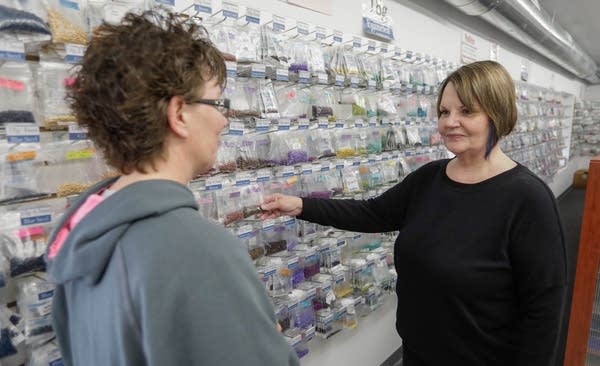Chain mail factory's needs don't always mesh with realities of rural Minn.

Edie Ramstad started Weave Got Maille in Ada, Minn., and now has customers in almost 80 countries.
Dave Wallis for MPR News
Go Deeper.
Create an account or log in to save stories.
Like this?
Thanks for liking this story! We have added it to a list of your favorite stories.


